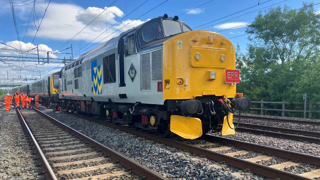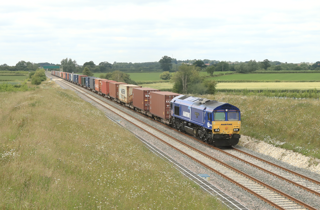The Rail Safety and Standards Board is collaborating with the University of Sheffield on developing a tool that uses artificial intelligence to help predict low-adhesion track conditions, with the aim of reducing train delays caused by ‘leaves on the line’.
Low-adhesion track conditions present a serious safety and operational issue for the rail industry, costing around £350 million each year.
Temperature, humidity and the presence of leaf layers or other contaminants all have an impact on the level of adhesion between the train wheel and the rail.
The new research project is investigating how more detailed information on local conditions can be used to tackle these seasonal challenges.
The project will use artificial intelligence (AI) to analyse data and high-resolution video footage captured from Network Rail monitoring trains. The AI tool will then be able to deliver more accurate predictions about friction at the wheel-rail interface.
One of the project outputs will be an online tool, for users to enter data that will generate friction predictions for anywhere on the network, in time for autumn 2023.
To read the full story, see RAIL 977.
You can subscribe for print/digital access via www.railmagazine.com/subscribe
















Login to comment
Comments
No comments have been made yet.